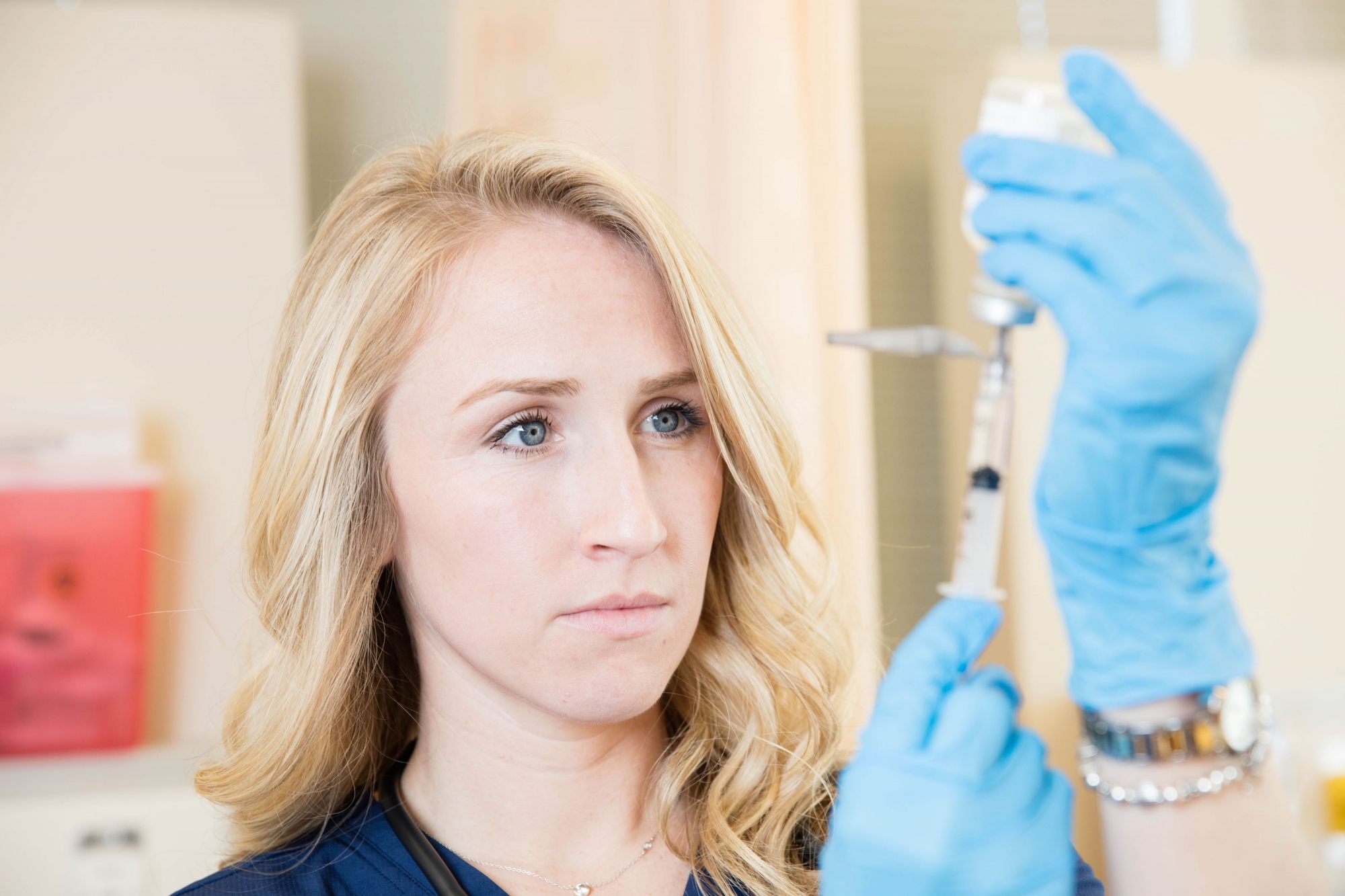October is the season for pumpkin spice everything, falling leaves, warm jackets and … flu vaccines? Yes, all health care providers should offer vaccination for the flu by the end of October, according to the Centers for Disease Control (CDC) website.
Immunity takes two weeks to develop, so health care providers and those most at risk should get vaccinated in late August or September, said Assistant Professor Carol Braungart, director of the Family Nurse Practitioner program at GW Nursing.
Dr. Braungart treats patients at an internal medicine office in upstate New York, where she has already seen cases of the flu this year, she said.
Peak flu activity generally happens in January or February, according to the CDC.
Thorough and frequent hand-washing is the best way to avoid getting the flu, but the vaccine has been shown to be very effective in preventing the flu or lessening its severity, Dr. Braungart said.
Good wellness practices like getting enough rest, eating a well-balanced diet, staying well-hydrated and keeping yourself as healthy as possible are additional measures to help ward off the flu, she said.
As a nurse practitioner, part of Dr. Braungart’s role is educating patients about conditions like the flu, how to prevent it and advocate for them to take preventative measures like the flu shot, she said.
She stressed the importance of not putting others at risk. If you’re feeling symptoms of the flu, stay home from work or wear a mask. It’s especially important to avoid contact with babies, the elderly and immune-compromised people if when displaying flu symptoms, she said.
“When people are sick and coughing in my office, (and do not have any respiratory distress), I ask them to wear a mask so they don’t spread germs,” Dr. Braungart said.


